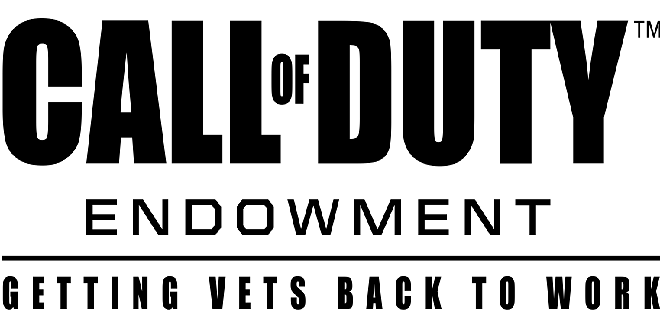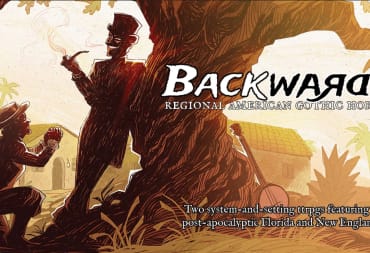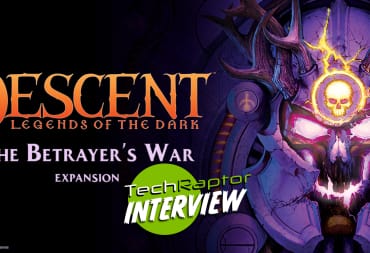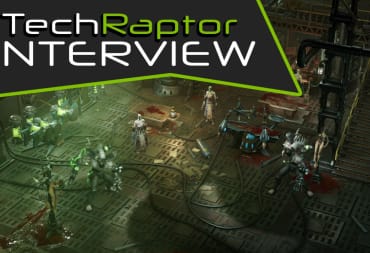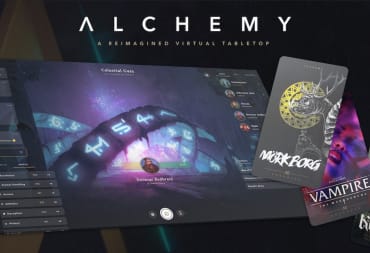The Call of Duty Endowment or CODE is a non-profit public benefit corporation largely supported and founded by Activision Blizzard. Back in 2007 Activision Blizzard CEO Bobby Kotick was motivated to help veterans when he realized that most veteran projects were for things like creating monuments instead of things that actually benefited veterans, things like jobs for unemployed veterans. In 2009 Kotick co founded the Call of Duty Endowment in hopes that pairing the Call of Duty brand with the Endowment’s mission would help do something truly beneficial for veterans entering civilian life.
Executive Director of the Call of Duty Endowment and a commander in the Navy Reserve, Dan Goldenberg took the time to answer some of TechRaptor’s questions about CODE, how it’s changed and how it helps veterans in need.
TechRaptor: How has the Call of Duty Endowment grown since its start in 2009?
Dan Goldenberg: We have grown quite a bit! As of 2013, we had funded the placement of just over 1,000 veterans into high quality jobs, but we knew we could have a greater impact. So, we aggressively refined and optimized our funding model that finds the most efficient and effective non-profits that help place vets into jobs. With help from Deloitte, we launched a new approach to our grant-giving in 2013. Since then, we have funded the placement of over 17,500 veterans. And, in 2015, we did this for about one fifth the cost of the federal government’s efforts, which is something we’re really proud of.
The goal of CODE is to help find veterans quality jobs and to diminish the stigma against vets as employees. The corporation does this by supporting other organizations that help veterans prepare for the job market. CODE gives a lot of consideration to the groups they choose to help fund.
TR: How does the endowment choose the organizations it supports and partners with like the Mt. Carmel Center of Excellence?
Dan Goldenberg: We take veteran hiring very seriously. We have a robust process that awards non-profits that demonstrate the highest level of effectiveness, efficiency, and integrity in placing veterans in quality jobs with our Seal of Distinction. In 2015, we awarded the Seal of Distinction to Operation:Job Ready Veterans, the Mt. Carmel Center of Excellence, and Paralyzed Veterans of America.
The process begins with a simple, but metrics-driven application. Organizations that make it through the first screen are then vetted by our outside board of advisors, who vote on the applications. Top picks go to Deloitte, which spends between two and five days on site with each candidate organization, validating the accuracy of the application, reviewing performance impact, assessing financial health, and among other factors performing background checks on key leadership. Organizations that pass Deloitte’s assessment are then reviewed by our Board of Directors and, if approved, awarded the Seal of Distinction.
Beyond $30,000 in prize money and national recognition as a top performing non-profit, winners are now eligible for significant additional funding from the Endowment, as it is available. A good example is CASY. Beyond their initial prize money, they earned a $250,000 grant with us. They greatly exceeded our expectations on that investment, so the next grant was for $500,000. They excelled a third and fourth time to the point where we now fund them at over $1M annually and, to my knowledge, they are the lowest cost provider of high quality job placement services for vets in the nation.
CODE has created a Seal of Distinction Award which grants a $30,000 prize and national recognition to its winners. The Seal of Distinction program helps highlight organizations with the highest standards of quality and cost-efficient job placement services.
TR: Has the Call of Duty Endowment Seal of Distinction Award changed at all since it was first awarded in 2013? If so, how has it evolved?
Dan Goldenberg: Before the Seal of Distinction process was implemented, our average cost to place veterans in jobs was around $1,300. Now, it’s less than half that amount. The process we put into place with the Seal of Distinction has been quite effective and has allowed us to find the “needles in the haystack”—a handful of extremely high performing veteran serving non-profits in a sea of thousands. Because of this efficiency, we can help a lot more veterans find meaningful employment.
TR: What are the qualities that set Seal of Distinction Award winners apart?
Dan Goldenberg:
- A commitment to performance measurement and improvement;
- Integrity and financial transparency;
- A willingness to accept and aggressively address feedback;
- A desire to engage in meaningful collaboration with other high performing organizations (not reinventing the wheel when a capability can be gained through partnership).
The unemployment rate for post-9/11 vets is over 17.3%. The government spends an average of $3,000 to get a veteran back to work. CODE now spends an average of less than $700 to assist veterans in finding a quality job.
TR: How has the Call of Duty Endowment been able to lower the cost of helping veterans find employment compared to the government?
Dan Goldenberg: There are some areas of veteran need that are inherently governmental in my view—mental and physical healthcare, for instance. These areas are extremely expensive to address and innovation often requires enormous amounts of capital and tolerance of risk. The government also has enormous investment and infrastructure in this space already (the VA has America’s large hospital system, for instance). So government leadership makes sense in those areas.
When it comes to employment, however, the private and non-profit sectors have tremendous and relevant expertise—it’s really just a matter of bringing it to bear on the problem. The non-profit and private sectors can also adapt much more quickly than the government to changing market conditions and demand signals from employers.
Additionally, we have more robust measurement and accountability systems than the government. We can rapidly replicate what is working and change what is not. One example: the government does not measure and report on the quality of the job placements made. Essentially, with the government’s efforts, a job is a job. In contrast, our grantees measure full-time vs. part time, average starting salary, and 6-month retention rate on a quarterly basis. So we always know how we’re performing, reinforcing success and ceasing non-productive activities.
TR: What is the biggest hurdle to veterans looking to re-enter the workforce?
Dan Goldenberg: Officers and senior NCOs (non-commissioned officers) typically do not have much difficulty finding work. The unemployment problem for veterans is primarily one that affects young, enlisted veterans who typically do not have a bachelor’s degree, though many do have some college education. For this group, there are a number of hurdles, and their difficulty varies depending on the individual. Challenges include:
- Selecting a target industry and function to pursue (if you joined the military right out of high school you likely have no idea about the range of options in the civilian employment sector);
- Translating hard and soft military skills into language understood by civilian employers;
- Finding good fit opportunities;
- Addressing training and skill gaps;
- Improving interviewing/negotiating skills.
Military service does not prepare veterans for any of the above challenges. After all, the job of the military is to fight and win our nation’s wars, not to make successful civilians. Our funded non-profits do a great job at closing these gaps.
TR: How do the charitable organizations that The Call of Duty Endowment supports overcome the obstacles presented to unemployed veterans?
Dan Goldenberg: The Endowment’s grantees have honed repeatable, proven processes for addressing each of the obstacles named above. They also make a point of hiring counselors who are knowledgeable about the civilian employment landscape and are passionate about helping veterans (typically they are veterans or military spouses themselves). Finally, they do a great job building relationships with employers—ensuring they deliver “good fit” veterans. If employers are happy with the vets they hire they are likely to seek out many more.
TR: What is different about veteran work assistance programs than other programs that help those facing unemployment?
Dan Goldenberg: Two things:
- Understanding and addressing the civilian job market experience gap veterans face;
- Having a deep understanding of the value veterans bring to the civilian workplace, such that they can teach veterans to convey this to employers.
With gamers and Activision Blizzard’s support the Call of Duty Endowment has already placed over 17,000 veterans in jobs since 2009. The Endowment’s set an ambitious goal of finding employment for 25,000 veterans by the end of 2017. CODE is well on it’s way to achieving this goal but they still have a way to go.
TR: The Call of Duty Endowment has a goal of getting 25,000 veterans back to work by 2017. How will you achieve that in just 2 years?
Dan Goldenberg: We work hard with our grantees and are well on our way to this goal. While the final 2015 numbers are not in yet, we surpassed 17,500 placements through the end of September.
TR: How integral are the players of Call of Duty to The Call of Duty Endowment?
Dan Goldenberg: Call of Duty gamers are incredibly supportive of the Endowment’s veteran job placement efforts—both morally and financially. We know that over 90% of COD gamers feel veteran unemployment is a very important issue. They have reinforced this notion through support of efforts like our Endowment dogtags and challenge coins, the Race to Prestige, personalization pack, and Carl’s Jr./Hardee’s Ultimate Care Package on Veterans Day.
TR: What’s the best way for gamers to support the Call of Duty Endowment?
Dan Goldenberg: Sign up on our newly revamped website to stay in touch with us about opportunities to help. Also, you can follow us on Twitter at @CODE4Vets or friend us on Facebook.
Thank you so much to Dan Goldenberg for his interview with TechRaptor. CODE is working to help lower veteran unemployment. Visit the website to learn more about the corporation and learn how you can lend your support.
Have a tip, or want to point out something we missed? Leave a Comment or e-mail us at tips@techraptor.net
